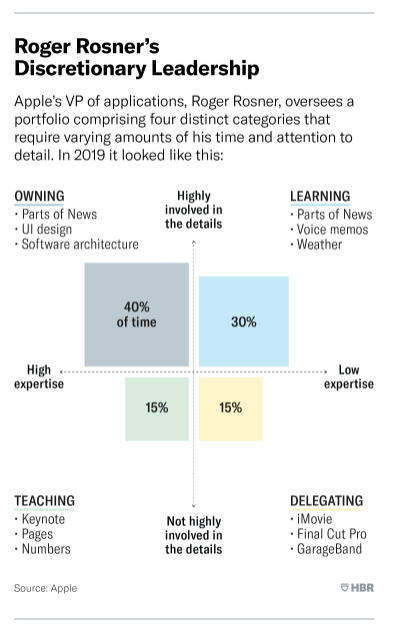Paul recently took up a new director role at a Gmodo, 200-person gaming company. In his new role, Paul will be managing four team leads + three principal individual contributors. Two of the teams and one IC are solidly overlapping with his technical expertise (microservices+infrastructure) and previous experience, while the others are in a technical domain that Paul knows nothing about (gameplay+performance).
Paul understands that Gmodo did not hire him for his technical expertise and that his job is to get the best out of the leads and ICs he manages. However, he feels uncomfortable with the fact he has not been in their shoes, doing their job, and that some of the technical terminologies fly by. In the past, Paul has leaned heavily on his technical chops to gain respect from his teams and fears it won’t happen with the team members who are experts in another domain.
What should Paul do?
Paul is having a classic case of imposter syndrome, which can be defined as “a collection of feelings of inadequacy that persist despite evident success.” Because Paul is most likely a perfectionist, he’s trying to recreate his past successes’ environment to maximise his chances of succeeding in his new role. But, while Paul thinks he was successful as a leader because of his technical skills, I believe he was successful despite them.
Since leadership is about making situations and people better, success only comes with a leader’s ability to grow their team members and enable them to reach their objectives collectively. But where Paul is right, is that when managing a team of experts, being a noob does make your team more sceptical about your ability to manage them. You’re not part of the tribe.
That is exactly what happens to Ted Lasso, a fictional American football coach in the eponymous TV show, who’s hired to manage a Premier League football team. In the show, Lasso starts with utter disrespect from the team members who don’t understand how someone who doesn’t know anything about their game could manage them. But armed with bullet-proof self-confidence, Lasso disregards critics and focuses on doing what he does best : coaching. He goes on solving the team dynamics and individual challenges, while leaving the football strategies to his deputies. Eventually, individuals become better, the team strengthens and starts winning.
“Success is not about the wins and losses. It’s about helping these young fellas be the best version of themselves on and off the field.”
Ted Lasso
Unfortunately, life is not a TV show, and there are no real examples of coaches who tried their luck in another sport. But there is a company that had to figure out how to evolve an “expert leading experts” model to cope with growth: Apple. In a recent HBR article, Joel M. Podolny, the current dean of Apple University, explains how Apple’s organisation has evolved over the years. When Steve Jobs arrived back at Apple, he “laid off the general managers of all the business units (in a single day), put the entire company under one P&L, and combined the disparate functional departments of the business units into one functional organisation.”
Jobs’ idea was that for innovation to happen, Apple leaders needed “deep expertise, immersion in details, and collaborative debate.” But, the scope of a typical Apple VP has exploded since 1996, both in headcount and the number of projects overseen. In response, many Apple managers have been evolving Steve Jobs’ leadership approach (experts leading experts, immersion in the details, and collaborative debate) into something called the discretionary leadership model.
Apple’s leaders now need to exercise greater discretion regarding where and how they spend their time and efforts: “they must decide which activities demand their full attention to detail because those activities create the most value for Apple. Some of those will fall within their existing core expertise (what they still need to own), and some will require them to learn new areas of expertise. Activities that require less attention from the leader can be pushed down to others (and the leaders will either teach others or delegate in cases where they aren’t experts).

The discretionary leadership model can be handy for Paul, especially since he wants to continue leveraging his expertise to add value to Gmodo. More practically, Paul’s coaching style should adapt depending on which types of activities a specific leader in his team oversees. For an activity in Paul’s owning box, he should be more hands-on, asking tough questions and challenging his direct reports. For an activity in his learning box, he should focus more on coaching the leaders, helping them figure out the best solutions while learning the new skills.
In the end, Paul should be careful about what is in his owning box; otherwise, he might micromanage or get distracted by tactical, technical matters. He’s a director now and should focus on strategy and developing his people.